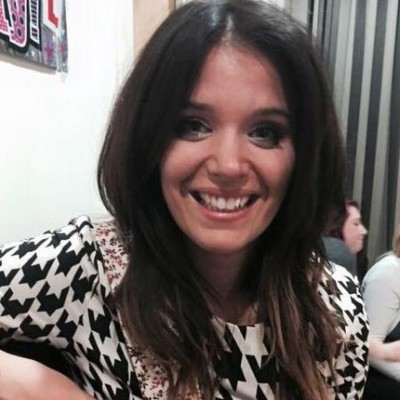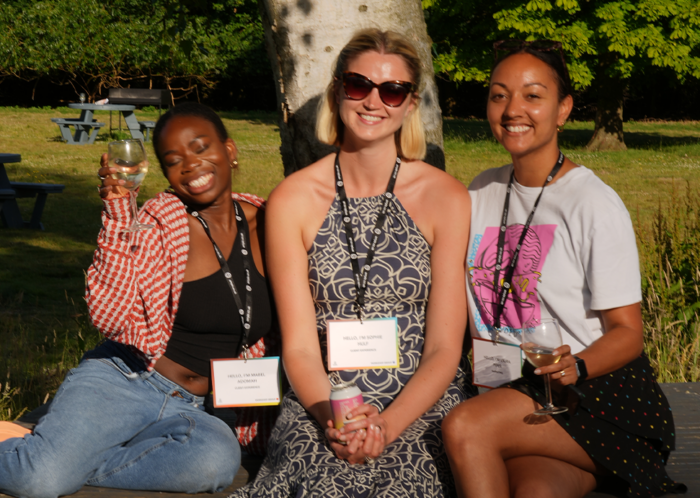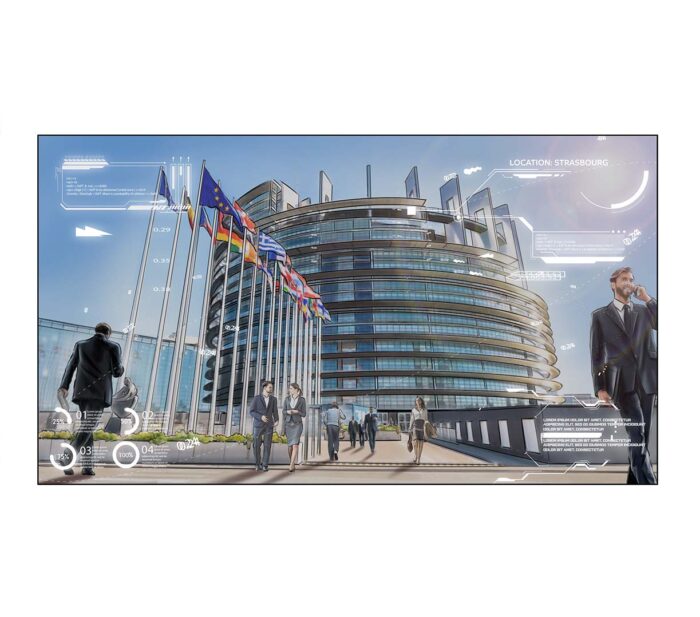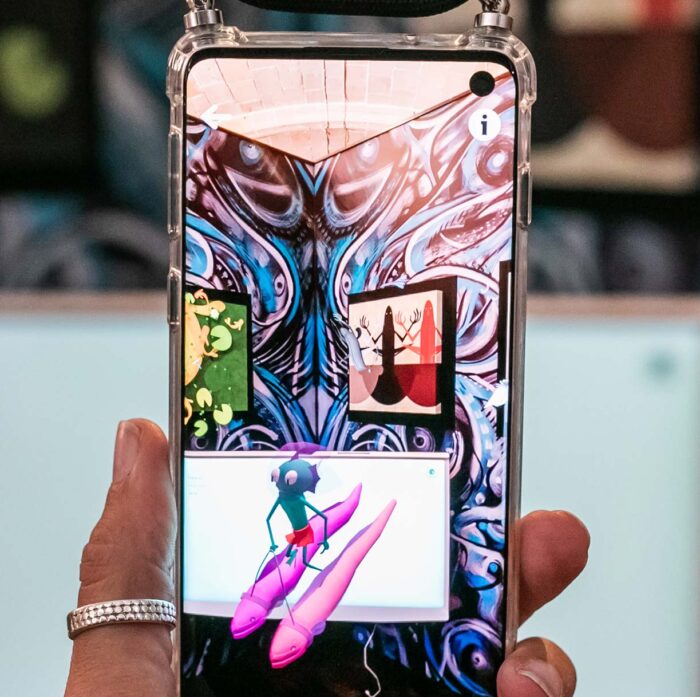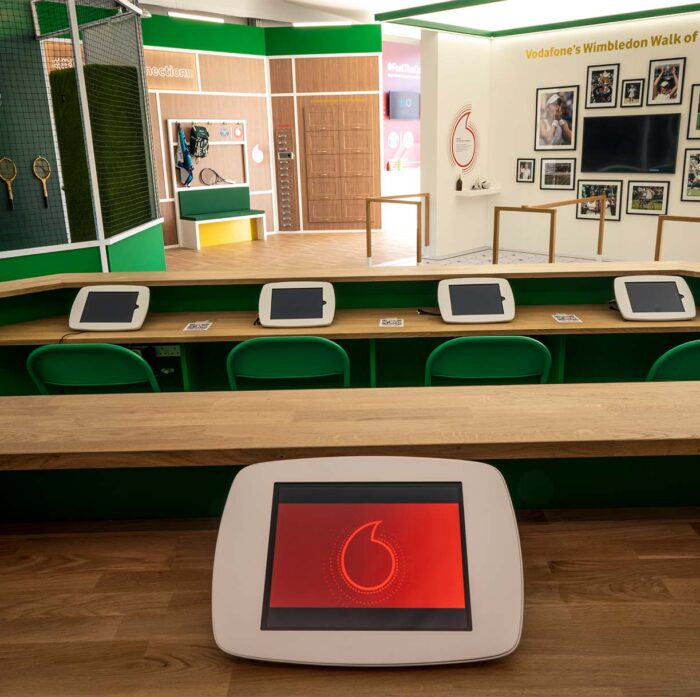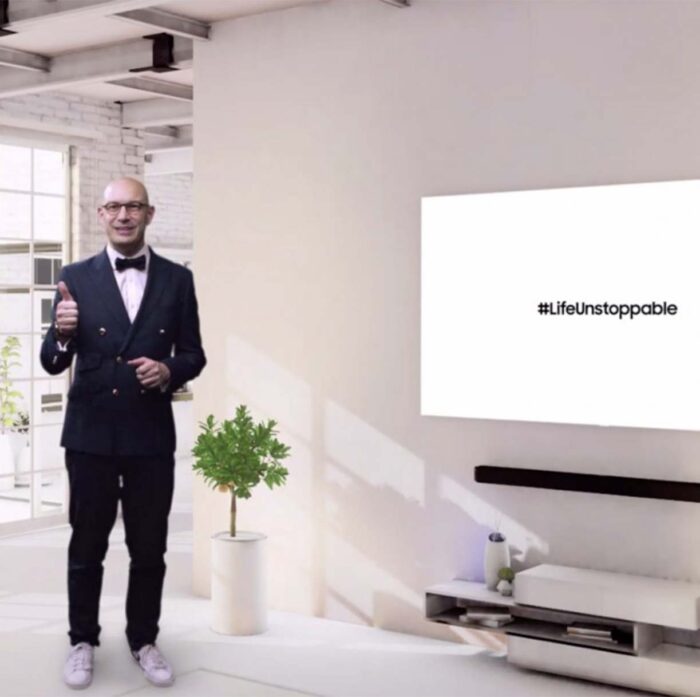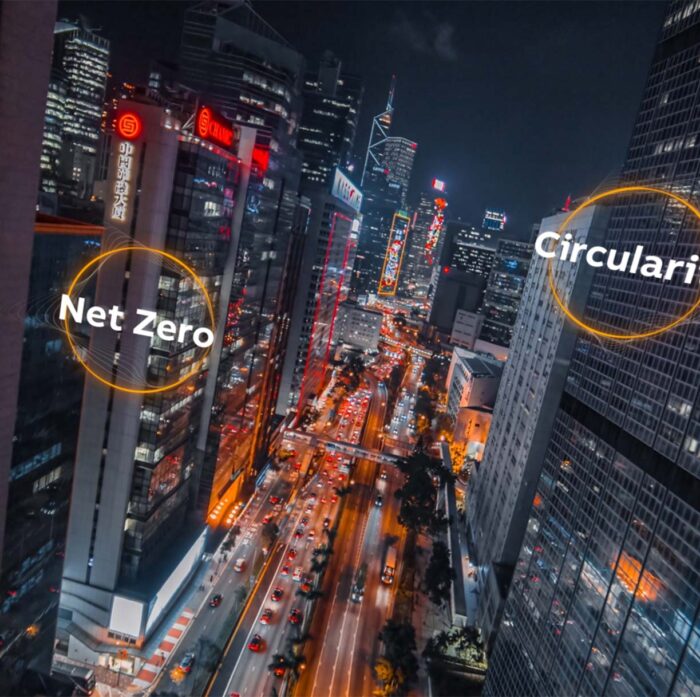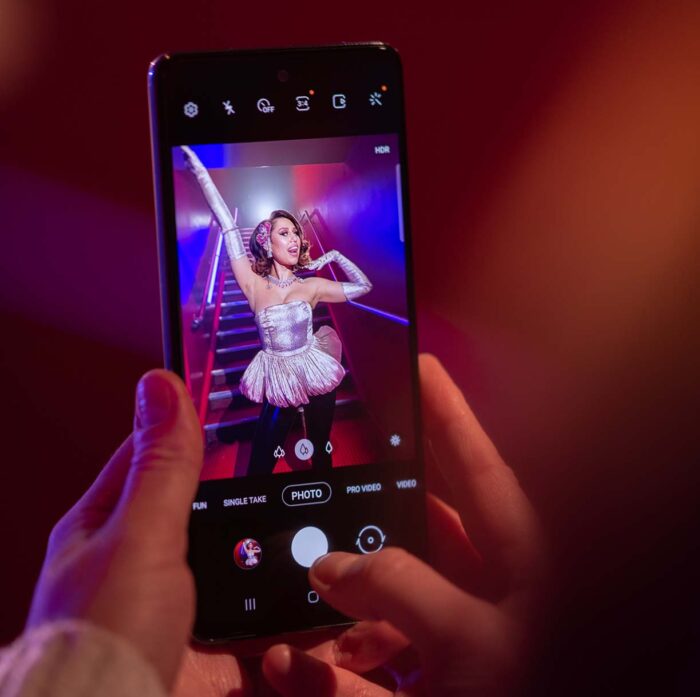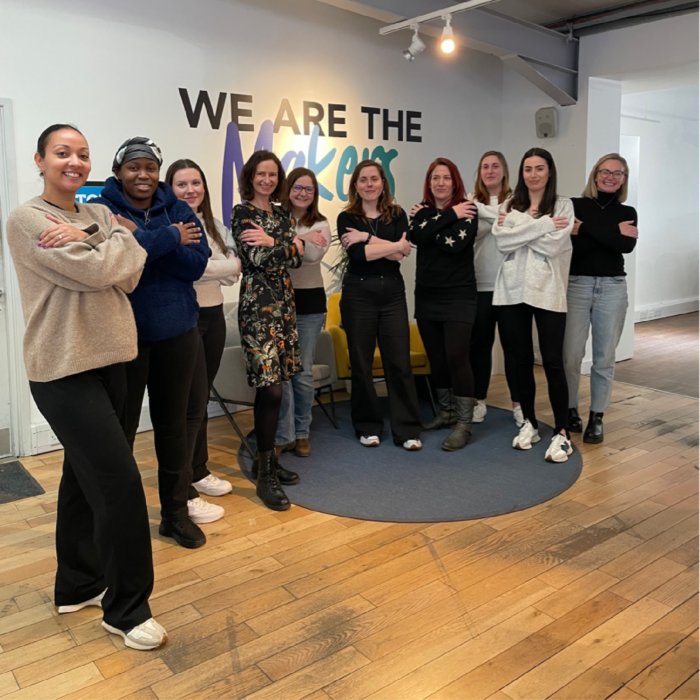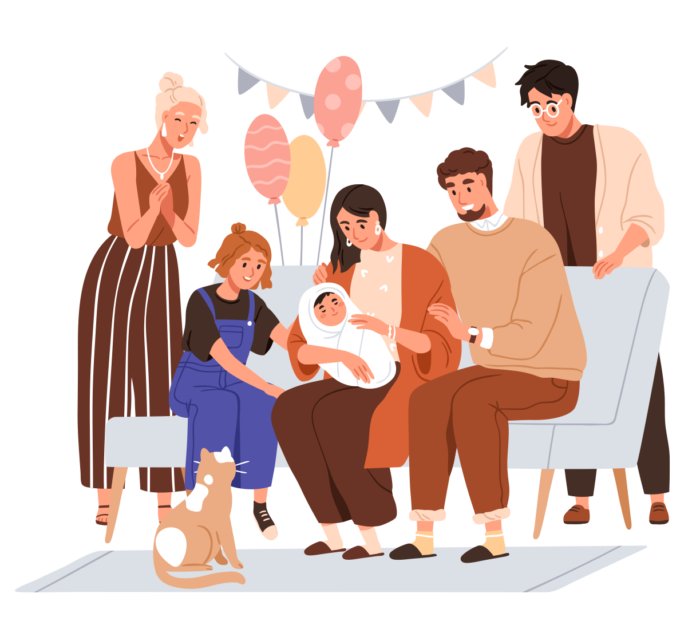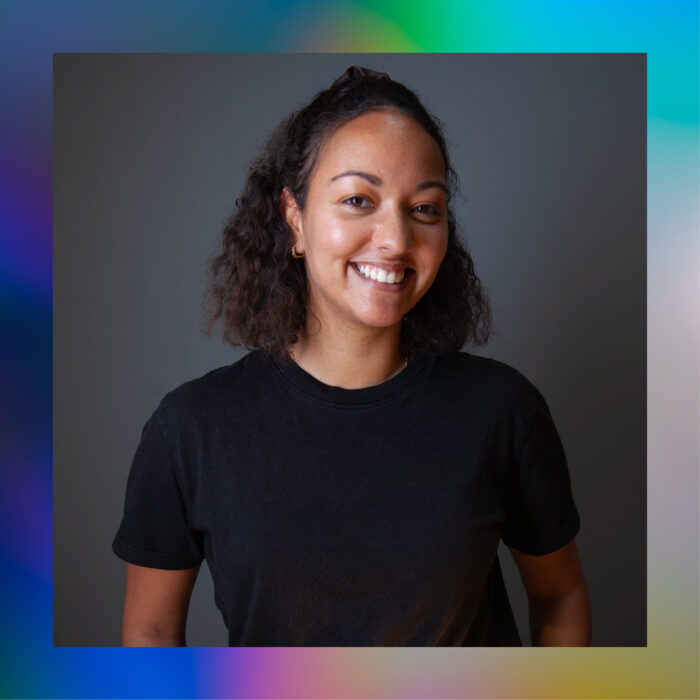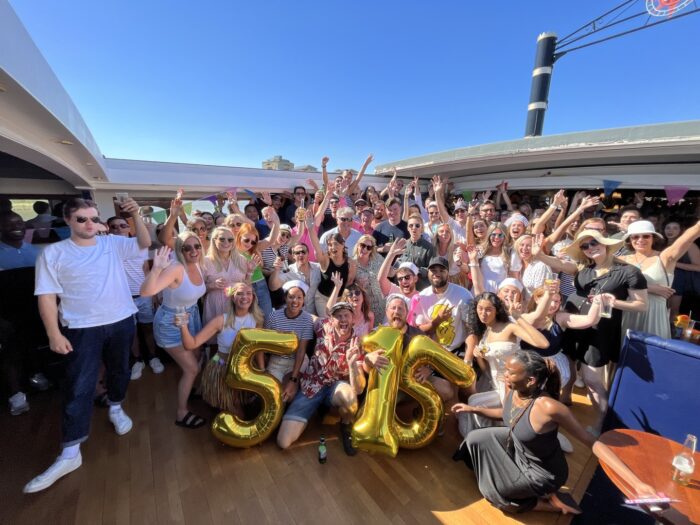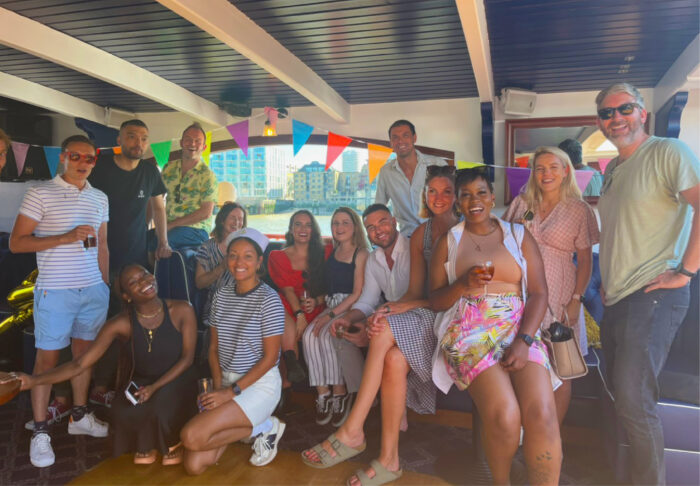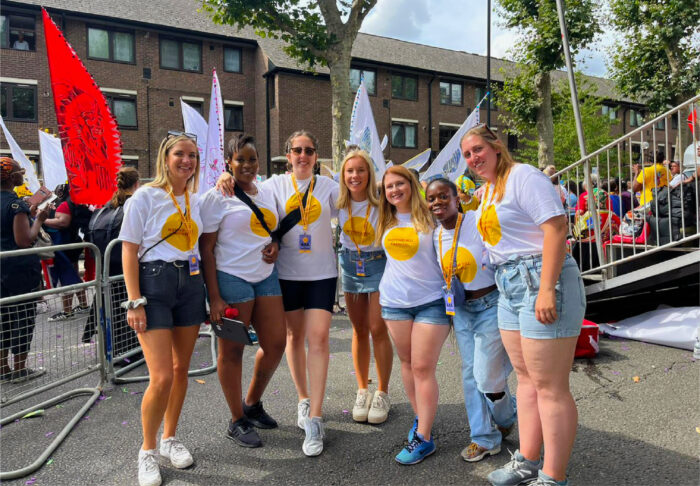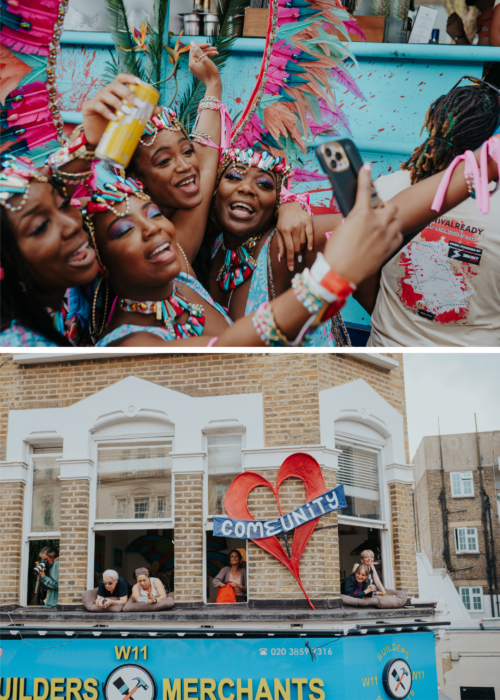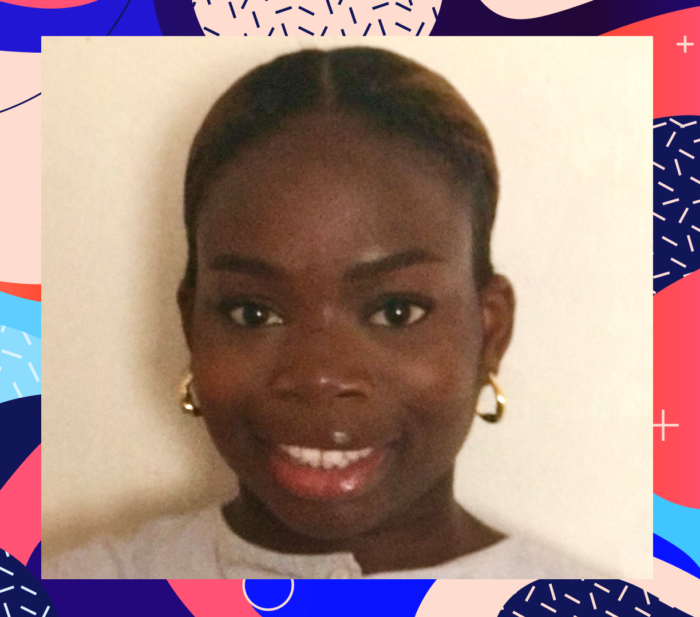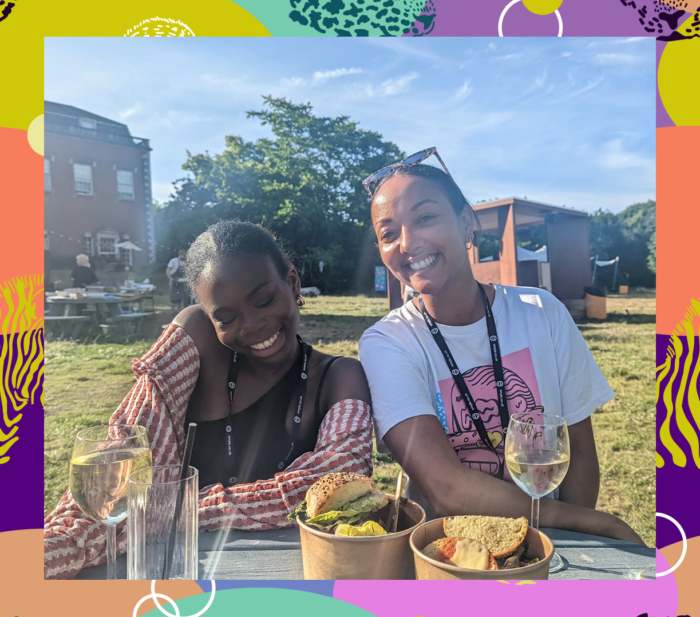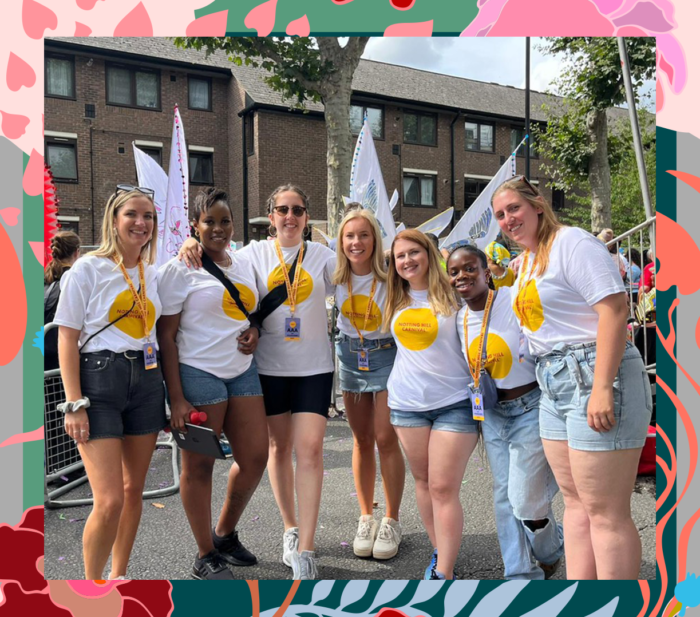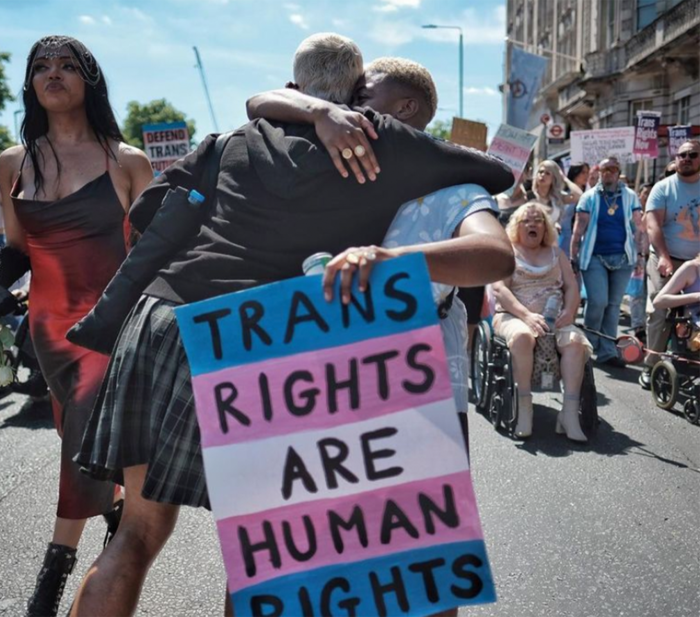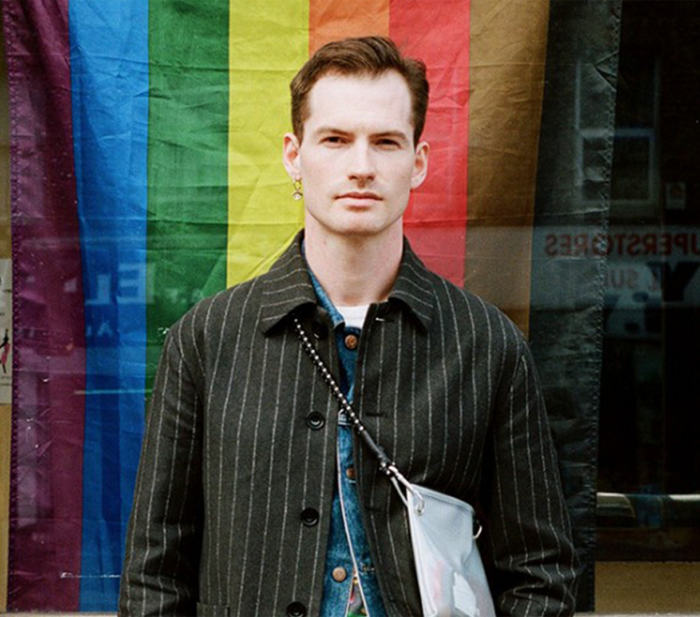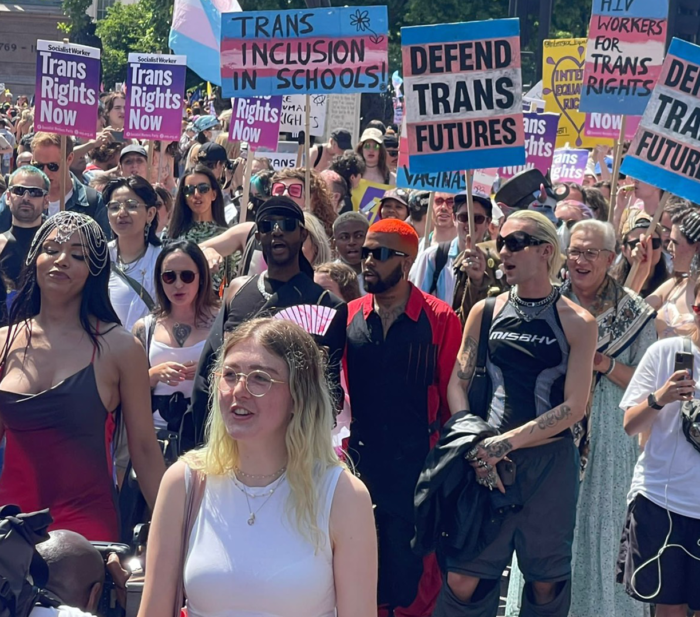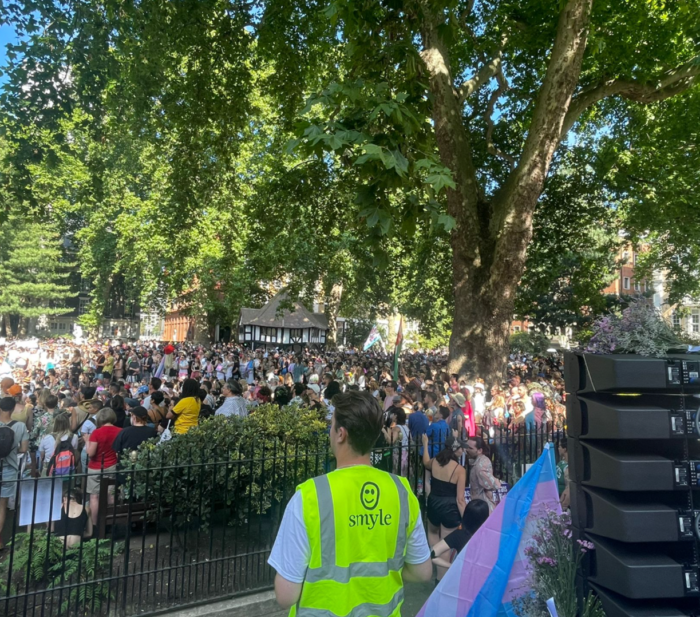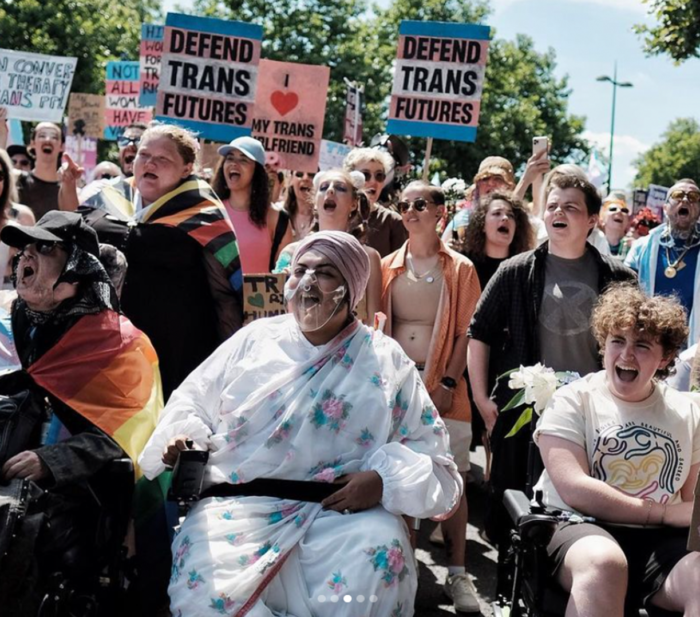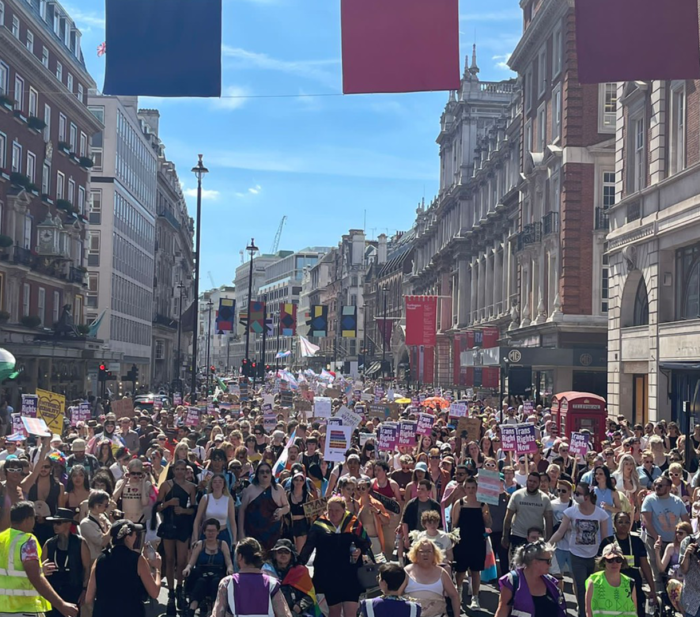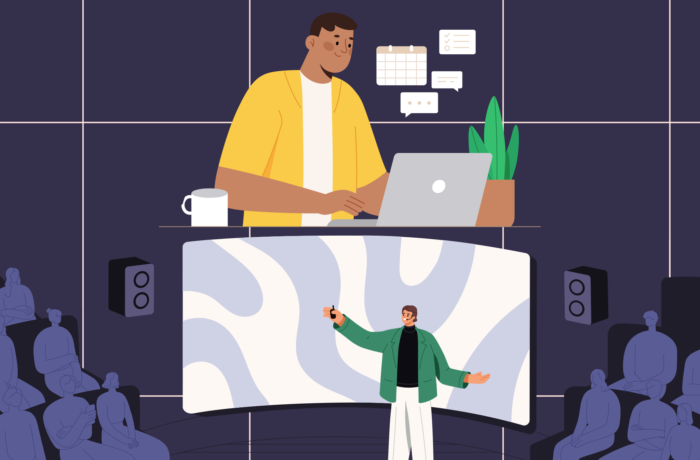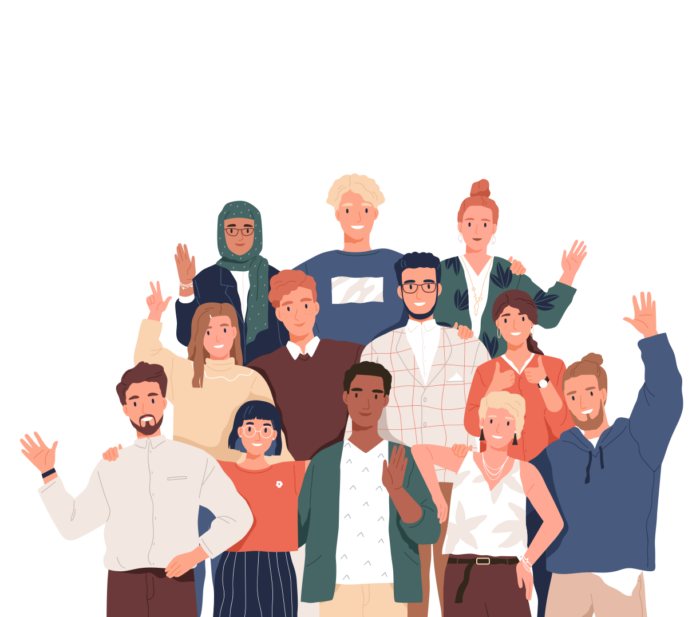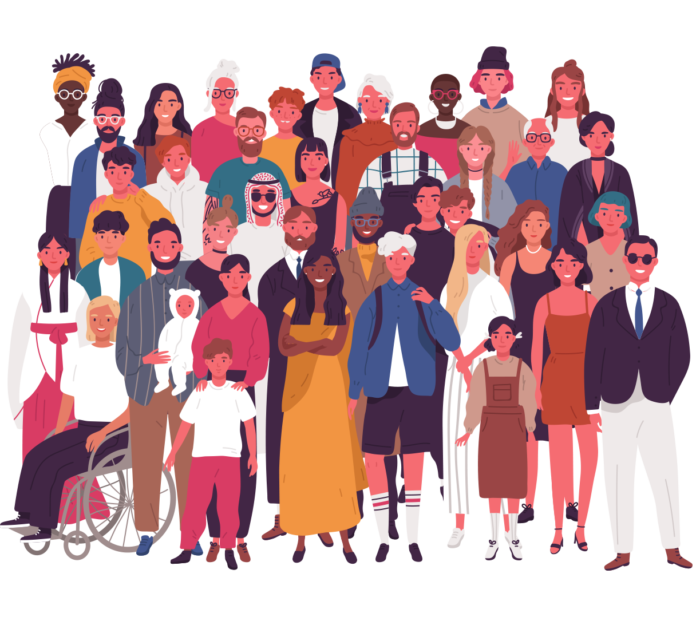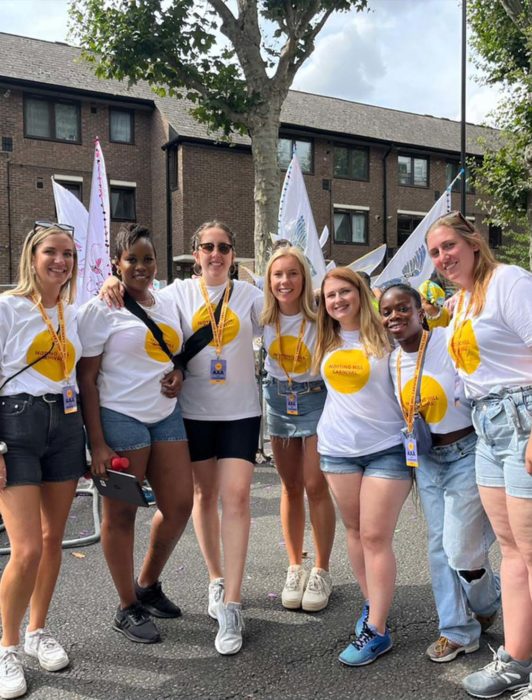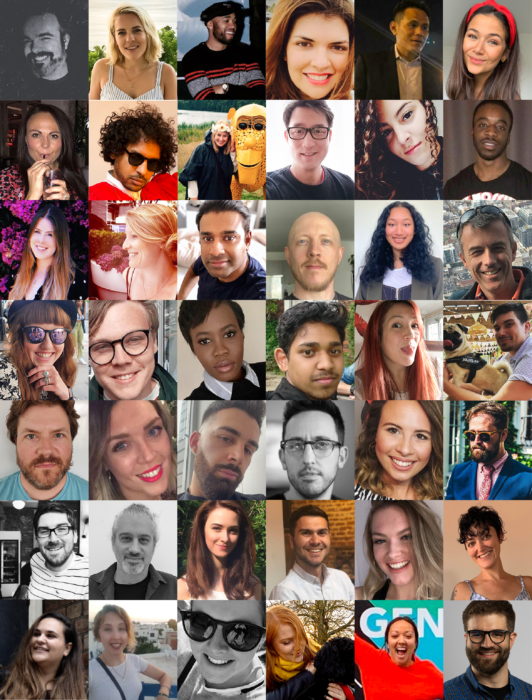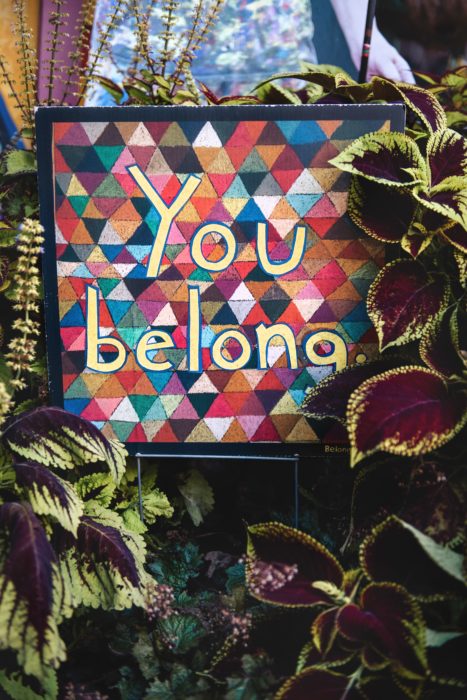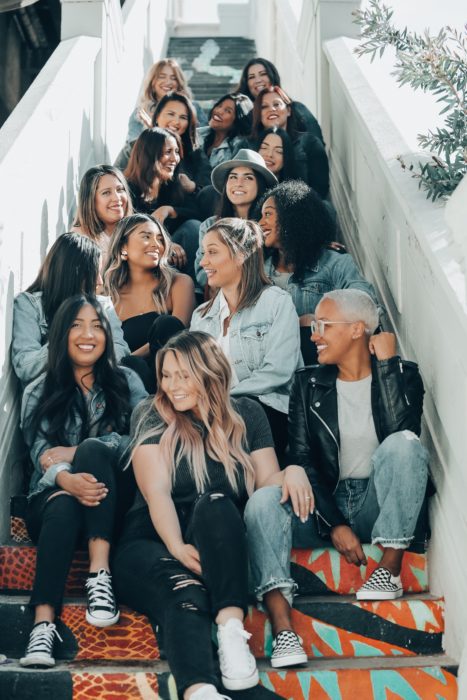Smyle Strategist Sophie Hulf (pictured left at centre) used Springboard at Smyle, an initiative to encourage everyone in the agency to pitch their ideas during the weekly Director’s meeting. She put together a slide about her idea to start a leadership and mentorship programme at Smyle. For the presentation, I worked with Sophie and researched organisations that could support our needs.
After being voted through by the other directors, the hard work had only just begun.
What followed was nine months of weekly meetings, looking at over 20 partner organisations, budget sign-offs, application forms, and branding, bringing us to our first session today.
On International Women’s Day (8th March), we announced the name, ‘This Way Up’, and that we would be working with AllBright. We offered a Career Accelerator programme to 20 women and non-binary Smylers and the opportunity for those not in the cohort to use the AllBright digital membership with mentorships, events and other support.
Coming up with the application process was challenging as we wanted to open it up to everyone and ensure it was fully accessible. To tackle any bias, we worked with our internal Collective (inclusivity and equity) network, who also worked with us on the application questions. The whole process was anonymous to ensure it was as fair as possible.
Our CEO Keith O’Loughlin, People Experience Director Charlotte Key, Sophie and I judged all the applications. We were so blown away by every applicant that we found it difficult to compare and judge one better than the other. So Smyle agreed to extend the Career Accelerator programme from 20 places to accept all 29 women and non-binary Smylers who had applied!
When we read the applications, I saw myself reflected back in so many answers – they were all amazing and moving. Each was a wave of confirmation that we were doing the right thing.
Good luck to all the women starting the programme today. You’re the first of many more to come, paving the way for the many women who will follow. I can’t wait to see the ripple effect of This Way Up across the industry.
"AllBright is thrilled to welcome Smyle to Alliance. Seeing their commitment to empower, nurture, and elevate leadership skills among the incredible women at Smyle has been inspiring to see and I'm sure that together, we'll be paving the way towards a more equal and equitable future for all."A comment from Ella Vize, Head of Academy and Learning Programmes and Co-founder of AllBright Alliance
